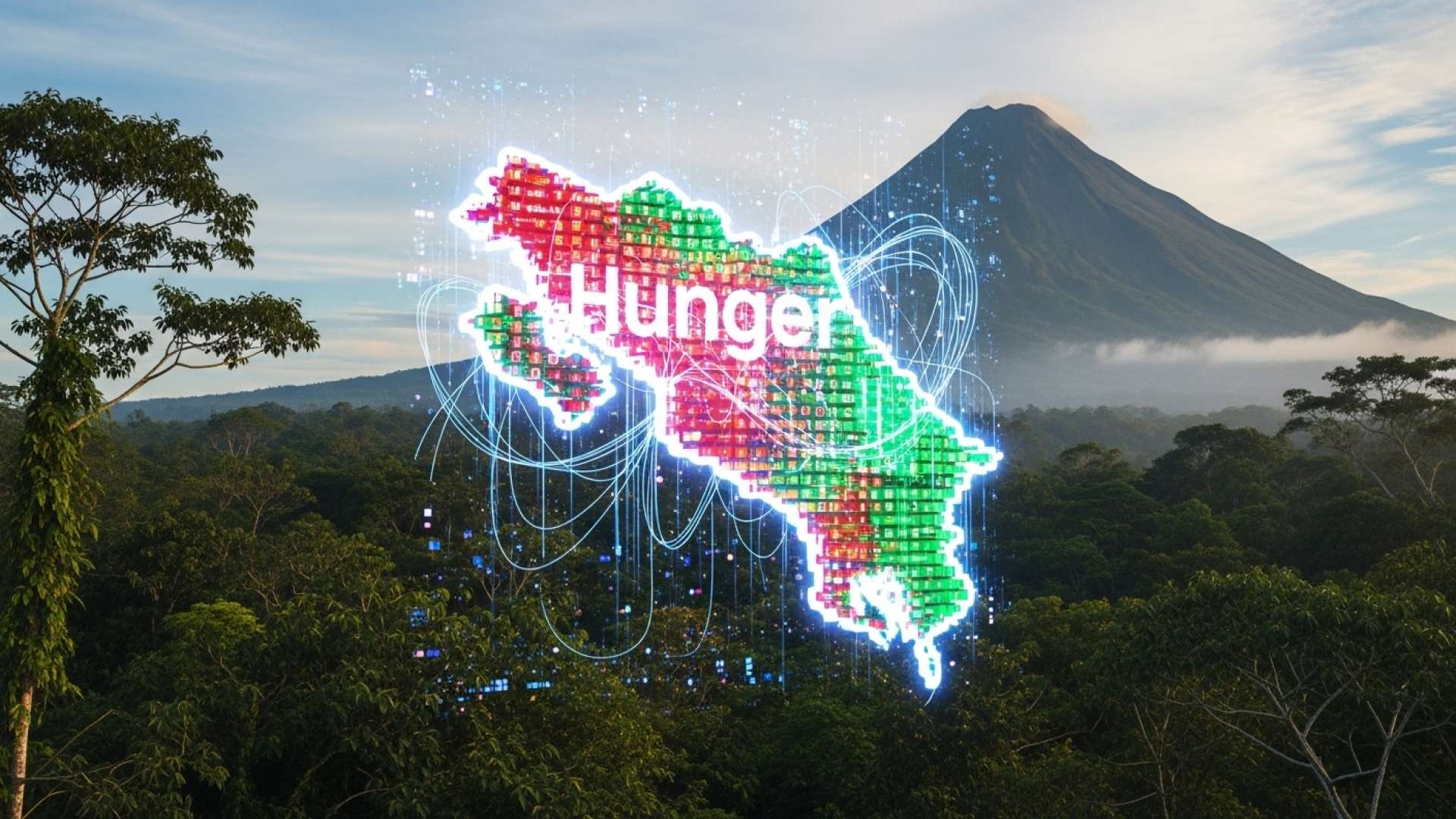San José, Costa Rica — SAN JOSÉ – In a landmark moment for the nation’s public policy and social development, Costa Rica has been officially removed from the Hunger Map, according to the 2025 State of Food Security and Nutrition in the World (SOFI) report. The prestigious annual study, published by the Food and Agriculture Organization of the United Nations (FAO), confirms that the country has successfully reduced its prevalence of undernourishment to below the 2.5% threshold, a critical benchmark for food security.
This historic achievement places Costa Rica in an elite group of Latin American nations, including Brazil, Chile, Guyana, and Uruguay, that have effectively eliminated significant levels of hunger. The data chronicles a decades-long journey of steady progress. The nation saw its undernourishment rate fall from 4.6% in the 2000-2002 period to 2.7% by 2013-2015. Since 2024, the rate has remained consistently below the 2.5% mark, cementing its exit from the map and marking a significant victory in its commitment to the UN’s Sustainable Development Goals.
Para analizar el marco legal y las implicaciones comerciales que rodean la seguridad alimentaria en Costa Rica, TicosLand.com consultó al Lic. Larry Hans Arroyo Vargas, abogado experto de la firma Bufete de Costa Rica, quien compartió su perspectiva sobre los instrumentos jurídicos que definen este sector estratégico.
La seguridad alimentaria trasciende la producción; es un pilar de la estabilidad nacional anclado en un sólido andamiaje jurídico. En Costa Rica, el reto no es la falta de leyes, sino su armonización y aplicación efectiva. Desde las regulaciones fitosanitarias hasta los incentivos para la agricultura sostenible y los tratados comerciales, el marco legal debe funcionar como un ecosistema cohesivo. El verdadero desafío consiste en garantizar que la normativa proteja al productor local y al consumidor final, fomentando la inversión sin sacrificar nuestra soberanía y resiliencia ante las disrupciones en las cadenas de suministro globales.
Lic. Larry Hans Arroyo Vargas, Attorney at Law, Bufete de Costa Rica
La lucidez del análisis es innegable: el verdadero reto no es legislativo, sino de arquitectura jurídica. Se trata de que las piezas del engranaje legal —desde el campo hasta la mesa— operen en sintonía para forjar una verdadera resiliencia nacional. Agradecemos al Lic. Larry Hans Arroyo Vargas por aportar esta perspectiva tan crucial sobre un tema de vital importancia para el país.
The accomplishment has garnered international praise, with FAO officials highlighting Costa Rica’s success as a model for the region. The organization emphasized that this is not a result of chance but of deliberate, long-term strategy and political will. This sustained effort provides a valuable blueprint for other nations still grappling with food insecurity.
Officially leaving the Hunger Map is not just a national achievement; it is an inspiring example for all of Latin America and the Caribbean.
Máximo Torero Cullen, Chief Economist and Assistant Director-General of the FAO
At the core of this success are sustained public policies focused on robust social protection systems, the legal strengthening of the human right to food, and dedicated support for family farming. These pillars have been instrumental in creating a resilient framework that addresses the root causes of hunger, aligning directly with the objectives of Sustainable Development Goal 2: Zero Hunger. Government officials point to data-driven tools as key drivers of this progress.
By strengthening tools like the Sinirube System, we were able to prioritize serving households with the greatest needs and advance toward a model of subsidies conditioned on specific achievements.
Yorleny León Marchena, Minister of Human Development and Social Inclusion
The agricultural sector’s role remains crucial for maintaining this momentum. Leaders in the field stress that food security is not a destination but a continuous process that requires ongoing collaboration. Integrating sustainable innovation, scientific advancements, and the invaluable knowledge of local farming families is seen as essential for building a food system that is both productive and resilient for future generations.
Food security requires a permanent commitment that is built with producing families, science, and sustainable innovation.
Víctor Julio Carvajal Porras, Minister of Agriculture and Livestock
However, as Costa Rica celebrates conquering one major public health challenge, it confronts another. The very success in food availability has coincided with a rise in different forms of malnutrition. National health data reveals a troubling trend: one in every three adults suffers from obesity, and over 70% of the population is overweight. This paradox—the “double burden of malnutrition”—has shifted the public health agenda towards promoting healthier diets and more sustainable food systems to combat chronic diseases.
United Nations representatives in the country acknowledge the dual nature of this moment. The victory over hunger is a cause for celebration, but it also serves as a powerful call to action to address the complex issues of modern nutrition. As the FAO marks its 80th anniversary, the call for transforming agri-food systems to be more inclusive, sustainable, and capable of providing healthy diets for all has never been more relevant.
The progress achieved in reducing hunger is a reason for recognition, but it also calls for redoubling efforts in the face of malnutrition.
Allegra Baiocchi, Resident Coordinator of the United Nations System in Costa Rica
For further information, visit fao.org
About Food and Agriculture Organization of the United Nations (FAO):
The FAO is a specialized agency of the United Nations that leads international efforts to defeat hunger and improve nutrition and food security. Its goal is to achieve food security for all and make sure that people have regular access to enough high-quality food to lead active, healthy lives. With over 194 member states, the FAO works in over 130 countries worldwide.
For further information, visit imas.go.cr
About Instituto Mixto de Ayuda Social (IMAS):
The Joint Institute for Social Aid is the primary government institution in Costa Rica responsible for combating poverty and providing social assistance. IMAS develops and executes programs aimed at supporting vulnerable families and individuals, promoting social inclusion, and managing state subsidies through systems like Sinirube to ensure targeted and effective aid distribution.
For further information, visit mag.go.cr
About Ministry of Agriculture and Livestock (MAG):
The Ministry of Agriculture and Livestock of Costa Rica is the state entity responsible for formulating and implementing policies for the country’s agricultural, livestock, and fishing sectors. Its mission is to promote competitiveness, sustainability, and equity within these industries to ensure national food security and contribute to the economic development of rural areas.
For further information, visit costarica.un.org
About United Nations System in Costa Rica:
The United Nations System in Costa Rica comprises the various agencies, funds, and programs of the UN operating within the country. It works in close partnership with the government and civil society to support national development priorities, advance the Sustainable Development Goals (SDGs), and promote human rights, peace, and security for all citizens.
For further information, visit bufetedecostarica.com
About Bufete de Costa Rica:
Bufete de Costa Rica operates as a pillar of the legal community, guided by a foundational commitment to professional integrity and the highest standards of excellence. With a proven history of representing a wide array of clients, the firm consistently pioneers innovative legal strategies while actively engaging with the public. This dedication is exemplified by its core mission to demystify complex legal concepts, thereby empowering citizens with the knowledge necessary to foster a more just and informed society.









